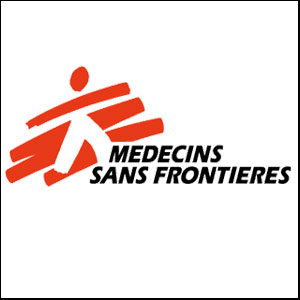 [Médecins Sans Frontières press release, Link] Ministers from the eleven countries* assessing the Trans-Pacific Partnership (TPP) trade deal have suspended many of the damaging provisions that would have restricted access to medicines and vaccines, a victory for millions of people who rely on affordable medicines worldwide.
[Médecins Sans Frontières press release, Link] Ministers from the eleven countries* assessing the Trans-Pacific Partnership (TPP) trade deal have suspended many of the damaging provisions that would have restricted access to medicines and vaccines, a victory for millions of people who rely on affordable medicines worldwide.
In the agreement, now called the Comprehensive and Progressive Agreement for the Trans-Pacific Partnership (CPTPP), which still has to be finalized, several of the TPP’s damaging intellectual property measures have been suspended. As originally written, the TPP—the worst trade deal ever for access to affordable medicines—would have extended pharmaceutical company monopolies, kept drug prices high, and prevented people and medical treatment providers from accessing lifesaving medicines by blocking or delaying the availability of price-lowering generic drugs in many countries.
This announcement** comes after years of pressure from MSF and other public health advocates asking the negotiating countries—currently Australia, Brunei, Canada, Chile, Japan, Malaysia, Mexico, New Zealand, Peru, Singapore, and Vietnam—to remove terms that would have limited access to affordable versions of lifesaving medicines in countries across the globe.
Statement from Dr. Els Torreele, Executive Director, Médecins Sans Frontières (MSF) Access Campaign
“MSF and other public health advocates have sounded the alarm on this deal for years. We’re pleased to see that trade ministers heeded these warnings and recognized the TPP’s disastrous implications on affordable medicines and public health in these countries and beyond.
“The TPP trade deal was the worst trade deal ever for access to medicines with expanded intellectual property and other proposals that bolster pharmaceutical monopolies and restrict access to affordable treatments from reaching the people who rely on them to live healthy lives.
“The removal of a number of provisions from the CPTPP that are harmful to people’s access to medicines is a major victory, but this doesn’t mean the fight is over. MSF, ministries of health, and people all over the world continue to struggle with the global crisis of unaffordable lifesaving medicines. Ongoing trade negotiations like the Regional Comprehensive Economic Partnership*** still include harmful intellectual property proposals that could strengthen and broaden pharmaceutical monopolies, perpetuating and worsening this crisis.
“Instead of protecting pharmaceutical interests, we hope countries consider alternative ways—like those recommended in the UN Secretary-General’s High-Level Panel on Access to Medicines report—to foster research and development of needed health technologies that are affordable, without trading away the lifesaving medicines we need today.”
Notes:
*Australia, Brunei Darussalam, Canada, Chile, Japan, Malaysia, Mexico, New Zealand, Peru, Singapore and Vietnam
**On the sidelines of the APEC summit taking place in Vietnam last week, ministers from the eleven negotiating countries agreed on the core principles of CPTPP, suspending a limited set of provisions that previously in the TPP.
Ministerial Statement – http://dfat.gov.au/trade/agreements/tpp/news/Documents/ministerial-state…
Full list of suspended provisions: http://dfat.gov.au/trade/agreements/tpp/news/Documents/annex-2.pdf
***The Regional Comprehensive Economic Partnership (RCEP) deal is currently being negotiated by Australia, China, India, Japan, New Zealand, South Korea and the ASEAN nations.




